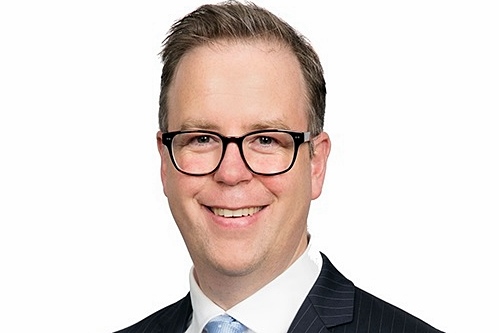If Stuart Walter could change anything about being a lawyer, it’s the tunnel vision that often happens in the profession.
The
Mills Oakley commercial disputes and insolvency partner says that there can be too much focus, particularly for junior lawyers, on individual numbers. Good lawyers, he says, want to work hard on lots of good matters.
“As an industry, we need to be better at communicating how what we do is valuable – both to the market and internally,” he tells
Australasian Lawyer.
In this interview, Walter also talks about the importance of keeping an eye longer-term goals and what he thinks is the biggest issue that the Australian legal space is facing this year.
What made you choose a career in law?
The variety of work, and the new challenges that you constantly get presented with, mean that the job never really becomes stale. I also get to deal with highly intelligent and motivated people on a daily basis, including my clients, colleagues and the other parties.
What has been your proudest accomplishment to date?
From a career perspective, I’ve helped clients get some great results over the years, and I am really proud to have been able to deliver for each of them. The first trial win still sits as a really special moment.
What do you love the most about your job?
I really love the formulating of a strategy to achieve an outcome for a client, following the strategy through and achieving that outcome. The appreciation from the client, sharing the success with those who worked hard to put the strategy into action and the satisfaction of pulling it all off is what I love most about my job.
If you could change anything about your job – or in general, about being a lawyer – what would it be?
I think, in a very general sense, there can be too much focus on individual numbers, particularly for junior lawyers. Good lawyers of course want to work hard on lots of good matters. As an industry, we need to be better at communicating how what we do is valuable – both to the market and internally.
What do you love doing outside of work and why?
Spend time with my wife and children, watch the mighty Pies, and catch up with friends.
What’s going on at the firm? Are there any new initiatives and programs firm-wide and in your practice?
Mills Oakley has so much going on! We are Australia’s fastest growing firm, which means that there are a lot more opportunities for our people to progress through the ranks. We are a top-10 Australian law firm by lawyer count and attracting amazing clients. We have also launched the MO Accelerator, which has assisted innovation start-ups in the legal industry, and we recently announced the first round of winners from that initiative. Mills Oakley is a really exciting place and a major reason why I was so keen to be a part of the firm.
What is the best advice you’ve ever received?
Work hard, take opportunities and back yourself.
What is your advice to young lawyers just getting their start in the industry?
Work hard on the present, but always keep an eye on what you want your life to look like in five and maybe 10 years. It is important to have goals and ensure that what you are presently doing is going to get you there. It helps avoid feeling like you are simply in a grind.
What do you think is the single biggest issue facing the Australian legal space this year? Also, what are the issues affecting your area of expertise this year?
I think the legal space needs to address what type of work is truly “commoditised” work from that which falls within the “legal advice/advisory” side of the sector and do a better job of separating them (both in the use of technology, processes, staffing and how they are marketed). I get the feeling other professional industry sectors are ahead of the legal space here.
The commercial disputes space has seen huge changes over the last decade or so with electronic document management and e-trials, more case management of matters and other initiatives by the courts, earlier dispute resolution and arbitration. Generally, I have seen most of these measures as good things and achieving quicker and more commercially beneficial results for clients.
Alternately, what excites you about the Australian legal space and your area of expertise this year and beyond?
From the perspective of commercial disputes, I think the advancement of technology and the sector’s ability to embrace and become adept at using that technology means less time being spent on menial aspects of case preparation and more time focused on the key issues and getting the result. That is ultimately what we want to be doing and so that is exciting. I think the better we get at that side of things, the more the sector will be able to communicate its value – and it is very valuable – to the wider market, and consolidate, and likely broaden, our roles as trusted advisors.
 Stuart Walter
Related stories:
National firm announces largest promotion round yet
Top firms act on Australia’s largest single-stage solar project
Stuart Walter
Related stories:
National firm announces largest promotion round yet
Top firms act on Australia’s largest single-stage solar project


